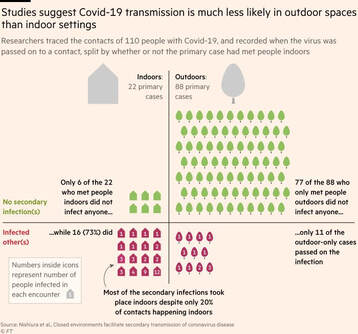
The training numbers were restricted to 15 outdoors and 6 indoors. Why is there a smaller number allowed to train together indoors? That is not such a silly question to ask. Consider the likely answer to that question and then consider that all GAA fields are outdoors and the minimum length of a GAA field is 130m and the minimum width is 80m. Prior to yesterday, 200 people were allowed populate inside and outside the GAA field (although it appears that the Taoiseach did not know that this was the case, as suggested here). Many are asking how we allow 50 people to attend indoor events such as cinema/theatre/worship/lectures but we do not allow 50 people to attend outdoor events. Could outdoor attendance at sports events be limited to 50 people or to X% of fixed-seating capacity?
There is a danger with the GAA looking for the evidence. Or even looking for decisions to be based on evidence. There are other questions that could be asked. Why are the games themselves allowed continue given that gaelic games are contact sports? Why are 15-v-15 games are allowed continue while only 15 people are allowed to train together (usually more socially distant)? But if forced, then most sports people prioritise games ahead of training and behind-closed-doors to no games.
We should ask people to explain their decisions. We should ask them for their evidence. But we should also remember that there are limitations to our decision making. Let me finish with a quote from The General Theory of Employment, Interest and Money.
"... human decisions affecting the future, whether personal or political or economic, cannot depend on strict mathematical expectations, since the basis for making such calculations does not exist; and that it is our innate urge to activity which makes the wheels go round, our rational selves choosing between the alternatives as best we are able, calculating where we can, but often falling back for our motives on whim or sentiment or chance."
 RSS Feed
RSS Feed